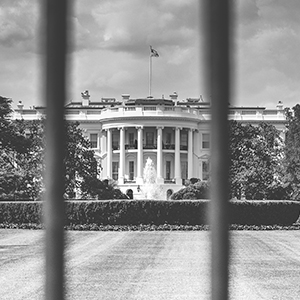Ogden v Saunders: The Contracts Clause
Historical
In Ogden v Saunders, 25 U.S. 213 (1827), the U.S. Supreme Court held that a New York bankruptcy law did not violate the Constitution’s Contracts Clause. The case is also most remembered as the only decision from which Chief Justice John Marshall dissented.
The Obligation of Contracts Clause
Article I, Section 10 provides that “No State shall . . . pass any . . . law impairing the Obligation of Contracts.” The Framers included the provision to deter state “debtor relief” laws that they believed were immoral and worsened economic instability.
The Facts in Ogden v Saunders
Saunders, a citizen of Kentucky, demanded payment in accordance with a contract. Ogden, a citizen of Louisiana, was living in New York when the contract was signed. In defense of the suit, Ogden claimed bankruptcy under a New York bankruptcy law enacted in 1801. Saunders was represented by Daniel Webster, who argued that Constitution’s bar on states from impairing the obligations of contracts applied equally to past and future contracts.
The Majority Opinion in Ogden v Saunders
The Supreme Court ruled in favor of Ogden. According to the majority, the New York bankruptcy law did not violate the Obligation of Contracts Clause.
In reaching its decision, the majority concluded that Contracts Clause prohibited states from enacting laws affecting contracts already signed. Accordingly, the obligation of a contract made after the enactment of a state bankruptcy law is subject to its provisions because the bankruptcy statute becomes part of all subsequent contracts.
Chief Justice Marshall’s Dissent in Ogden v Saunders
Chief Justice John Marshall authored a dissenting opinion, which was joined by Justices Gabriel Duvall and Joseph Story. The dissenters argued that Congress had exclusive power to pass bankruptcy laws. With regard to whether state laws become part of contracts signed, Chief Justice Marshall maintained that “contracts derive their obligation from the act of the parties, not from the grant of government.”
In his dissenting opinion, the Chief Justice also summarized his beliefs on how the Constitution should be interpreted, writing:
To say that the intention of the instrument must prevail; that this intention must be collected from its words; that its words are to be understood in that sense in which they are generally used by those for whom the instrument was intended; that its provisions are neither to be restricted into insignificance, nor extended to objects not comprehended in them, nor contemplated by its framers; — is to repeat what has been already said more at large, and is all that can be necessary.
Previous Articles
SCOTUS Wraps Up Oral Arguments for the Term
by DONALD SCARINCI on May 17, 2022
The U.S. Supreme Court has concluded its oral arguments for the October 2021 Term. The justices hea...
SCOTUS Rules Censure of Elected Board Member Didn’t Violate First Amendment
by DONALD SCARINCI on May 10, 2022
In Houston Community College System v. Wilson, 595 U.S. ____ (2022), the U.S. Supreme Court held th...
Supreme Court Breach Is Not the First Involving Roe v. Wade
by DONALD SCARINCI on
The recent disclosure of Justice Samuel Alito’s decision purporting to overturn Roe v. Wade is ar...
The Amendments
-
Amendment1
- Establishment ClauseFree Exercise Clause
- Freedom of Speech
- Freedoms of Press
- Freedom of Assembly, and Petitition
-
Amendment2
- The Right to Bear Arms
-
Amendment4
- Unreasonable Searches and Seizures
-
Amendment5
- Due Process
- Eminent Domain
- Rights of Criminal Defendants
Preamble to the Bill of Rights
Congress of the United States begun and held at the City of New-York, on Wednesday the fourth of March, one thousand seven hundred and eighty nine.
THE Conventions of a number of the States, having at the time of their adopting the Constitution, expressed a desire, in order to prevent misconstruction or abuse of its powers, that further declaratory and restrictive clauses should be added: And as extending the ground of public confidence in the Government, will best ensure the beneficent ends of its institution.




